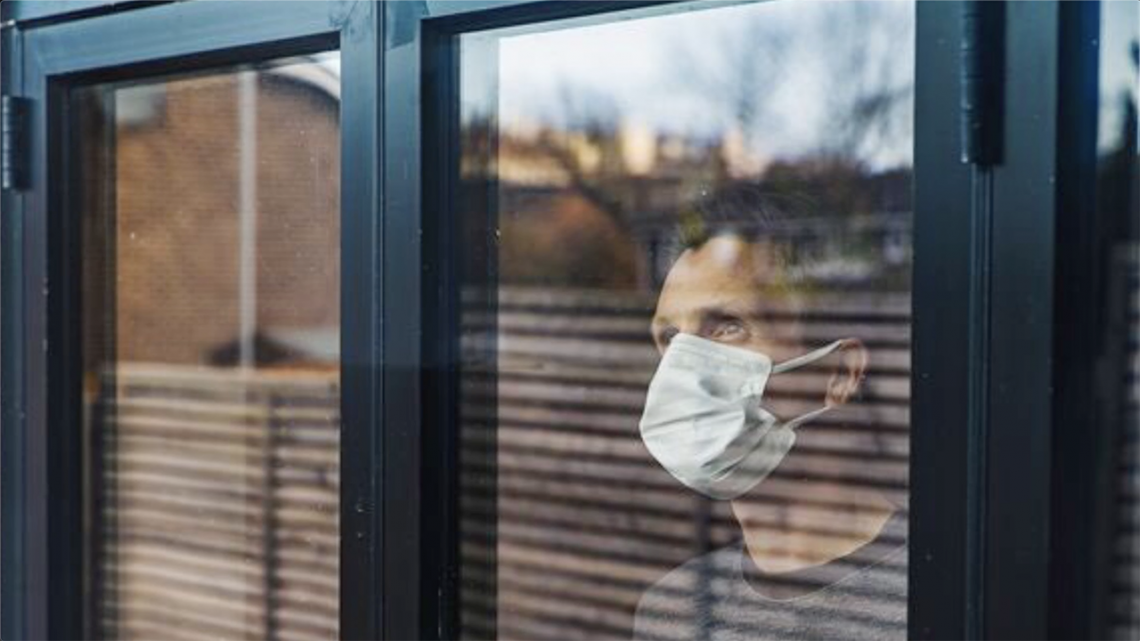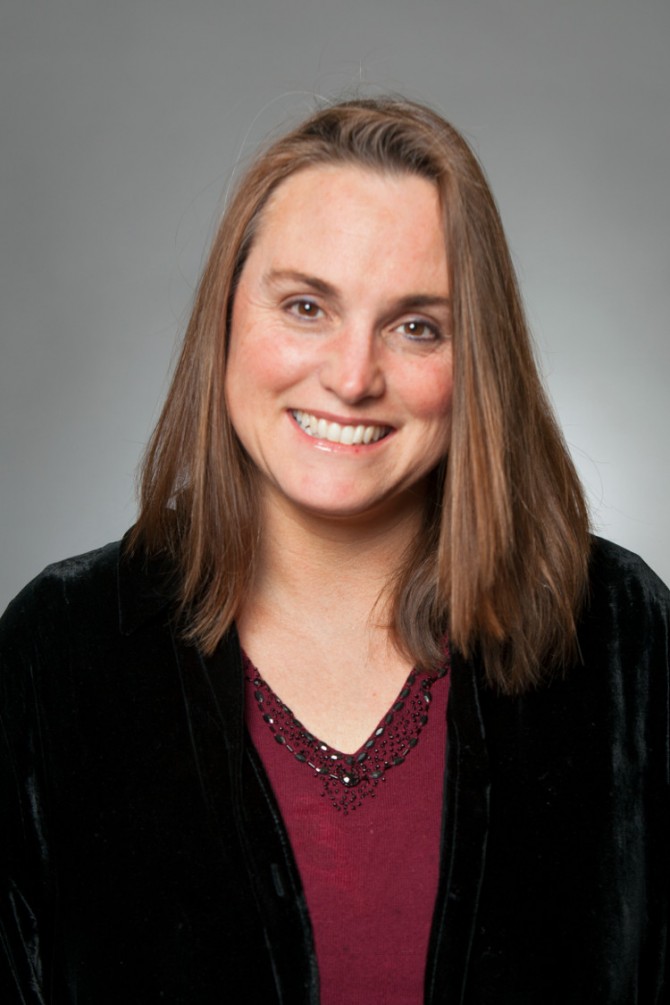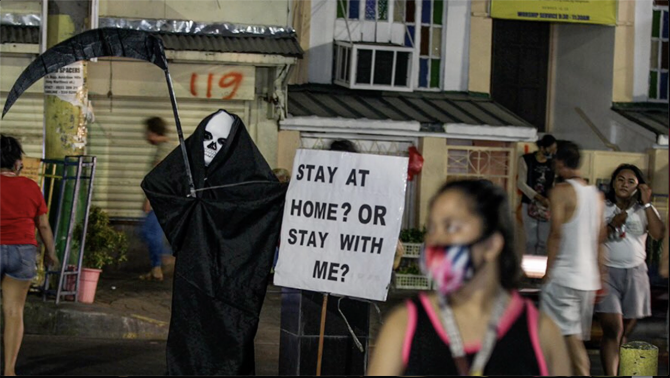
A screen grab from a student's video journal as part of the COVID-19 journaling project.
Journaling project, now global, welcomes COVID-19 stories
By James Dean Joe Wilensky
As the coronavirus pandemic unfolded this past spring, students in Janis Whitlock’s graduate seminar on translational research found themselves in a unique position – being able to participate in a widespread journaling project to record their hopes, fears and routines, chronicling COVID-19’s effects on their daily lives and relationships. It is a project that is both intimately personal and also cast on a global scale.
From around the world, contributors have shared reflections on life during the pandemic and this tumultuous year through “Telling our Stories: in the Age of COVID-19 (… and More),” created by Whitlock, a research scientist and associate director at the Bronfenbrenner Center for Translational Research in the College of Human Ecology.
In March, recognizing that a historic moment was unfolding, Whitlock and lab coordinator Julia Chapman launched the project as an outlet for people across cultures to share experiences about how the coronavirus was affecting them. In just the first two weeks, nearly 260 people from more than 20 countries signed up, recording their hopes, fears and daily routines in written, voice or video journal entries.
“It has become abundantly clear that the profoundly historic nature of this time transcends the pandemic,” Whitlock said. “We are hoping to contribute to knowledge about how this time has changed life at the individual and collective level – the way we cope, the way we understand ourselves and others, and where we are individually and collectively finding hope.”
The answers to these questions, Whitlock said, could give researchers valuable insight into how people weathered a period of massive social and economic disruption, and into the effectiveness of policies responding to the crisis.
The project came together quickly, after efforts to “flatten the curve” of COVID-19 cases prompted Cornell to send most students home early and transition to virtual instruction for the remainder of the spring semester. Forced to revise assignments on the fly for her translational research seminar, Whitlock thought journaling would give her students, some scattered as far away as China and New Zealand, a timely exercise in “autoethnography” – using personal experience to analyze cultural phenomena.
“They’d have this mini-experience of what it is like to live through an absolutely historically relevant moment; I [didn’t] want them to look back without having done that,” she said. “There was resistance at first among some students. Having to get so close to their daily experience of something that felt so hard was aversive. In the end, though, once they had to look back over their entries and make sense of their documented experience, virtually everyone appreciated the opportunity.”
Research has shown journaling can be a cathartic process, Whitlock said; it is used as an intervention in a variety of therapeutic contexts. “In situations like this, it’s pretty ideal,” she said, “because it allows people a space to deposit stresses and worries as well as inspirations and hopes.”
Expanding the project’s reach
Whitlock, whose research focuses on adult and adolescent mental health and well-being, also thought: Why not open the project to the larger world grappling with social distancing and quarantines? Although millions were documenting their experiences on social media, they may be less likely to engage in consistent, thoughtful reflection on those platforms, she said.
Participation in the expanded project increased steadily, and got an additional boost in early August when the magazine The Atlantic ran a feature, “Dear Diary: This Is My Life in Quarantine,” about journal-keeping during the pandemic that covered Whitlock’s efforts. The project, which is ongoing, now includes more than 719 participants from more than three dozen countries.
“Telling our Stories” is open to anyon as a journaling space, and only those providing consent will be included in any research analysis. Participants submit demographic information and log how they are feeling. They answer questions about the impact of the crisis, their use of social media and where they have found “silver linings.” Then, daily emails prompt new journal entries along with any updates to one’s health, living or work status, or that of loved ones. Entries can be made as often as desired.
Submissions are private; researchers will not see personal information or include it in publications. Whitlock said the first of those publications will likely be a compilation of stories for participants, highlighting their collective experiences. In that way, she said, the project may prove as much artistic as academic.
Eventually, she expects the stories to present a rich portrait of how people coped over the arc of the pandemic and of the day-to-day impacts of policy interventions – from Cornell’s campus to the international level. Lessons learned could even inform policy in a future pandemic, she said.
Whitlock added that she plans to keep the study open until the pandemic is largely over, and that a follow-up study will likely be built to assess post-COVID-era perceptions.
Students reflect on their participation
As someone with a qualitative research background, Millie Dibble, a graduate student who took the spring seminar, had been on the receiving end of this type of data, but hadn’t ever before contributed to it. “Journaling nearly daily provided a comforting ritual and way to process my day,” she said. “… This project is not only valuable as research, but as an archive of a pivotal moment in history, and I’m glad I was a part of it. Having journaled my experience helps make my experience more concrete and memorable.”
Dibble noted that reading summaries of her classmates’ experiences, shared at the end of the semester, impacted her strongly. “It is so rare we know the extent of the emotions, personal difficulties and stresses of those we sit next to in class,” she said. “Sitting one to thousands of miles away on our computer screens, reading the narratives of my classmates, I felt connected to them in ways that I would not have otherwise.”
“What surprised me was the extent to which my attention was focused on managing the psychological stress the pandemic was having on my family members (and myself),” said graduate student Marc Anthonisen ’93, who returned to Cornell last year to prepare for a second career focused on bridging the gap between science and policy related to climate change.
Anthonisen had taken a course on disaster policy last fall, which included a pandemic simulation. “Based on that simulation, I had assumed that in the early days of a pandemic I would be focusing mostly on logistics – getting everyone to where they needed to be and sorting out food and medicine,” he said. “We did those things, but an equal amount of my mental focus was on the psychological stress of the situation, which also became a real factor in terms of how well we adapted, and continues to be a factor to this day. To me it showed the extent to which dealing with a crisis can be a mental game as much as logistics.”
Graduate student Angel E. Benitez Collante, who also took the seminar, said that when he thinks about how he will look back on his journal entries in future years, he believes it will confirm how important it is to keep records of people’s emotions and personal insights about reality as they unfolded. “This is important in a world where people do not remember what has happened a week ago if it is not still posted on social media,” he said. “In my daily journal, I decided to follow the crisis of global leadership in the actions taken by different presidents and prime ministers. Through recording my observations as events happened, I realized how relevant risk communication is to empower citizens to fight this epidemic and that effective leaders need to address communication issues such as misinformation.”
Graduate student Xuan (Vicki) Li said the journaling project offers a measurable and standardized tool for people around the world to learn about themselves and others, describing it as “a combination of literature, of arts, of self-meditation and scientific analysis.”
“I was more affected by the tiny but shiny kindnesses from ordinary people, the people that I met at the customs inspection, at a train station, or quarantine sites,” Li said of her own experiences. “These were not some heroic, Hollywood-style figures. And I can’t even name a single moving story. Instead, from those strings of flickering lights of humanity, I realize that the world is still worth fighting for.”
This story originally appeared in the fall 2020 issue of Ezra magazine.
Media Contact
Get Cornell news delivered right to your inbox.
Subscribe

